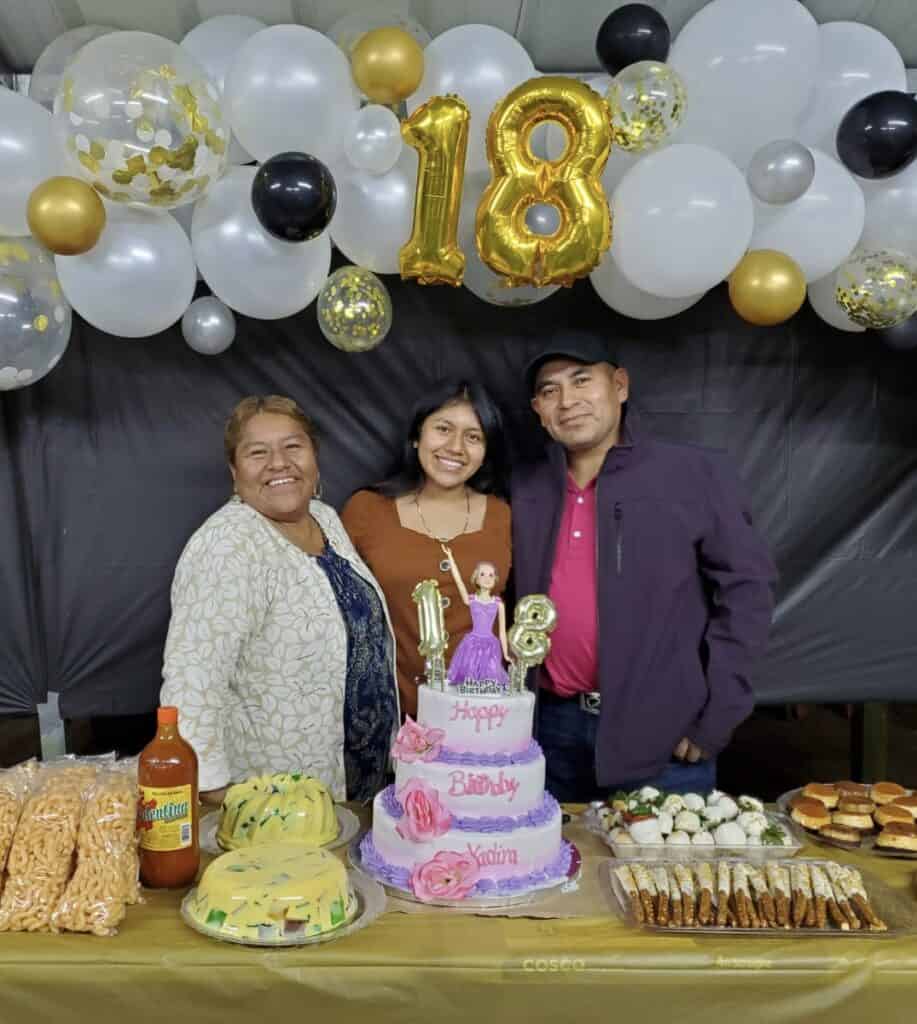– Yadira Paz-Martinez, 2022 SAF intern
NC Justice Center

In second grade, students start to learn the rule of stacking numbers to multiply. As I was given this assignment, I struggled. I did not understand how other students comprehended a topic so complicated. Observing another classmate, I asked her, “How did you learn to multiply so fast?” Her simple response: “My parents taught me.” I came home excited, hoping the same would happen to me, that my father would sit down and teach me to multiply. But that was not the case. At the age of seven, it was I who taught my father how to multiply because he never learned.
My father is a fourth-grade dropout who started working at the age of 11, expected to help provide for his family. My parents left Mexico and came to the United States with no money, seeking to establish themselves in a country that was not their home. They emerged in the U.S. with no knowledge of the English language nor resources to establish a comfortable lifestyle.
To prosper their family in a 1st world country, they worked in the hot fields and packaging companies to make ends meet. My parents' limited access to basic education and their continuous struggle to provide for our family taught my siblings and me why working hard for education is a necessity. A roach-infested home, cold reheated meals, and used clothes from a local thrift store were just a few of the luxuries I had as a child.
For 15 years of my life, I have dedicated every book I read, cent I earned, and time I had towards my education. I could see the years of hard work in my father’s hands, his rough, damaged skin showing me the hardworking man he became to help his children succeed.
I share my parents' story because it is also my story and the reality of millions of families that leave their home countries in search of a brighter future. Their life experiences impacted me in a meaningful way. They are the reason I encourage Latinx students to attend college. I fight for other Hispanics because in their eyes, I can see my own parents.
Beginning this program, I am excited to engage with students who have lived similar experiences and who are eager to make a change in the world, to ensure other children do not suffer the same fate we experienced. With hope, also comes fear– fear of not doing enough, fear that I will be unable to successfully help farmworkers obtain human rights. Despite my fears, I know hope will overpower these nightmares and we will accomplish change.
I was told many times, “Hispanic women do not make it far, forget politics.” Although the words stung, they didn’t bring me down. I wanted to prove to the world that a brown Hispanic girl can make it. And I did. With my background, parents who lack education, and living in a low-income household, I succeeded.
My past has impacted me, but my future, perseverance, and values are who I am.
